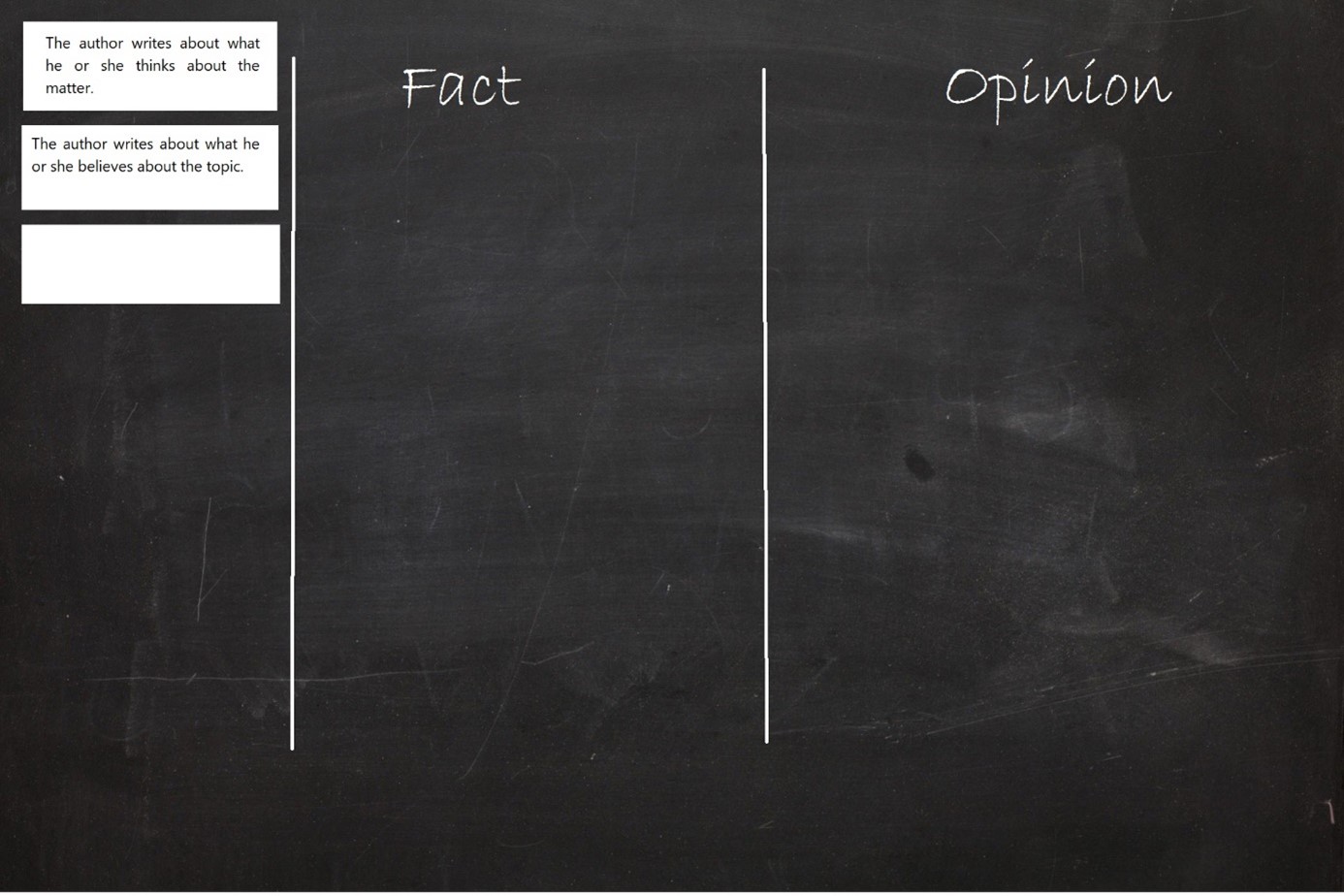
Exercise 2: Fact or opinion?
Time: 25 min
Teaching method: discussion
The goal of the exercise: to support the development of critical thinking skills and media literacy skills
Instruction for teacher: The ability to recognizing the difference between facts and opinions is a key skill in a social life. That is why it is often evaluated on reading tests and state exams. Remind your pupils that while people are entitled to their own opinions, they cannot have different facts. Offer the definitions below:
- Fact: something that is known to have happened or to exist. Fact is strictly defined and can be measured, observed, and checked. Refers to something that makes statements true and applicable in connection with research and study.
- Opinion: a thought or belief about something or someone, is a statement used in subjective matters that cannot be proved to be true or false. This is what a person thinks or thinks about something or someone. Therefore, it is not true but biased information.
Task 1
Time: 10 min.
The goal of the task: to refresh knowledge about differences between facts an opinion.
Instruction for the teacher: Prepare cards with the statements listed below. Statements relate to fact and opinion definitions. Make sure the font is large enough – pupils will read these statements from the board. There should be one statement on one sheet of paper.
Place all the cards on the side of the board. Divide the middle of the board into two parts and sign it: fact, opinion. Then, with pupils, move each statement card to the appropriate column: fact or opinion. Each time, check that pupils can explain why the statement is a fact or opinion.

Task 2
Time: 15 min.
The goal of the task: to make pupils understand that what they read, hear about refugees is not always a fact, but someone’s opinion
Instruction for teacher: Give each pupil Template52 (see the file below) cut into two strips. Your task as a teacher is to read aloud or display the following statements. Students decide whether the statement is a fact or an opinion by raise the appropriate card. If someone makes a mistake, re-explain the difference between fact and opinion and refer to the relevant statement.
In the case of statements classified as an opinion, you can lead a brief discussion:
- Where you think this opinion comes from?
- What refugee stereotype or myth does it concern?
- Why this opinion is unfair?


